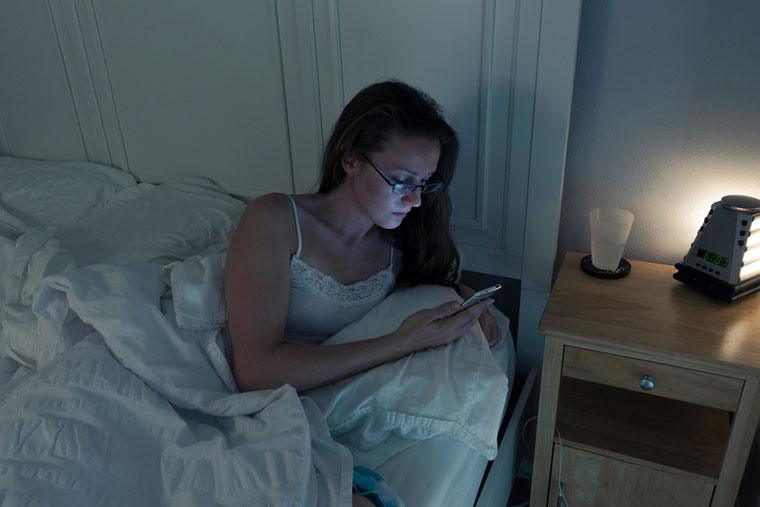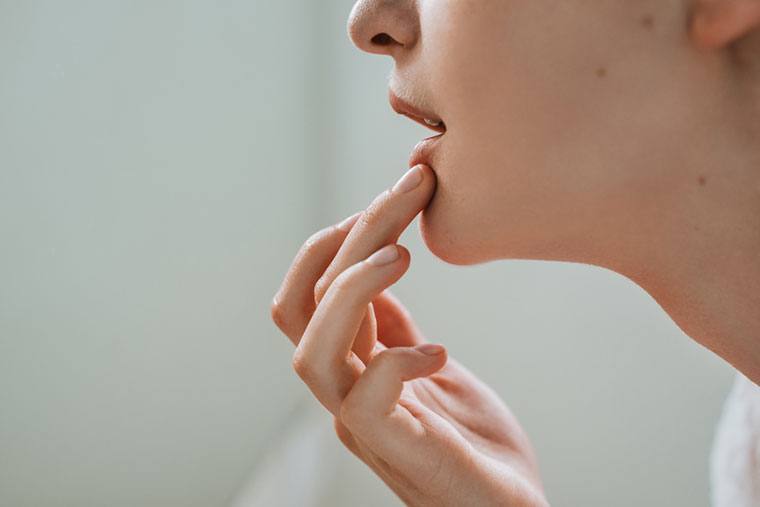The real issue is the blue light that emanates from your devices. "Blue light's found in natural sunlight and artificial light, but with it coming off of TVs, computers, and smart phones, we're more bombarded with it than ever," says Lisa Marie Garguilo, director of education for Luzern Laboratories, a skin-care brand that just launched a line specifically formulated to defend your skin against these rays.
Oculoplastic surgeon Maryam Zamani, MD, concedes that more studies on blue light are needed before firm conclusions can be drawn, but she believes it's possible that blue light can contribute to pigmentation, premature aging, and other skin woes. And unfortunately, there's no sparkle filter for real life...
Keep reading to learn more about blue light and how to protect yourself from its negative effects.

How does blue light affect you?
So, is staring at your screen as bad for your skin as laying out in the sun? "I wouldn't say blue light's unsafe, but it penetrates deeper than UVA and UVB rays," says Garguilo. "It goes into the sub-tissue of your skin and creates a certain type of free radical. And you're always trying to protect your skin from free radical damage." This can lead to the breakdown of collagen and elastin and cause irritation, redness, and hyperpigmentation. "It's like the rusting of your skin," Garguilo explains. "If you cut open an apple and see how it starts to turn brown, that's oxidation caused by free radical damage."

{{post.sponsorText}}
But a bigger concern, Garguilo and Dr. Zamani agree, is that blue light, especially when viewed before bed, suppresses your body's melatonin production and can throw off your circadian rhythm. When you're short on sleep—valuable down time your body uses to rejuvenate cells—it can wreak havoc on your skin. "That will probably cause premature aging," Dr. Zamani says. Maybe you don't need to scroll through Instagram one final time before saying good night.

Ways to stay healthy despite all the rays
While blue light won't give you a sunburn, Garguilo says you should protect yourself from its rays by slathering on a precautionary layer. "Wear a protective moisturizer or sunscreen and be sure to apply to the face, neck, and décolletage," she says.
However, SPF alone won't cut it, so Garguilo recommends looking for ingredients like lutein (a free-radical-busting carotenoid) and beta-carotene, which is converted to vitamin A (retinol) after absorption. Dr. Zamani adds, "Wear lots of antioxidants. Vitamin C is one of the best when it comes to anything that can cause pigmentation."
But the easiest way to protect yourself isn't a cream or serum—it's found in the device itself. "You can decrease light emission by turning down the brightness on your devices," Dr. Zamani says. It's super simple, but a totally bright idea.
Originally posted September 27, 2017, updated September 28, 2018.
In addition to your skin, all that screen time may be harming your eyes. Wean yourself off your smartphone by starting with a digital detox that lets you hold on to your device.
Loading More Posts...